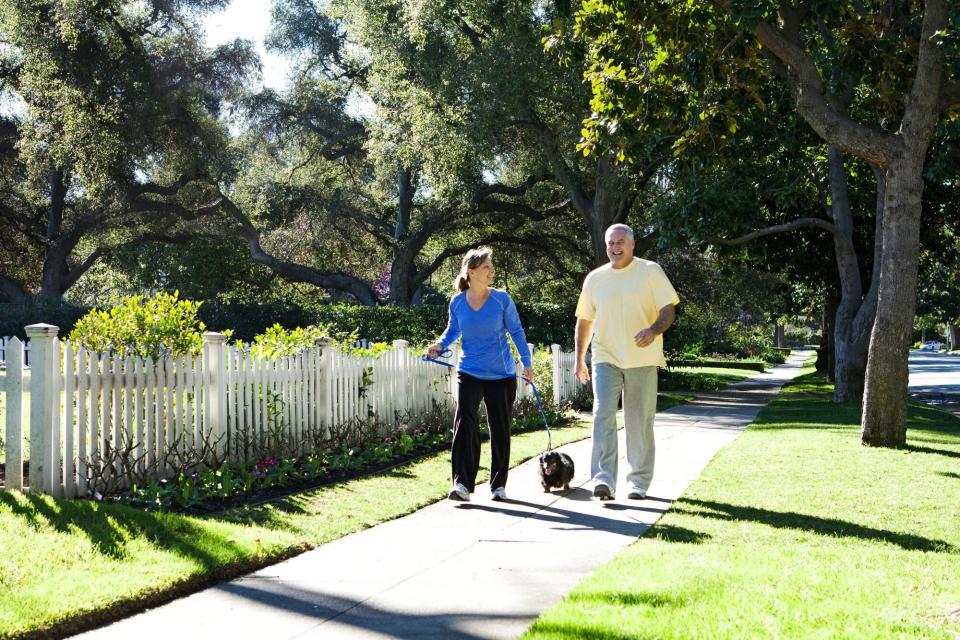Short, Brisk Walks Aren't Just Good for Your Body—They Can Also Protect Your Brain as You Age, New Research Shows
More and more studies are uncovering the benefits of breaking up a stagnant day with a brief stroll. But recent research published in the Journal of Epidemiology & Community Health found that moderate exercise, like going for a brisk walk, isn't just good for your body and heart—it can protect your brain as you age, too.
To obtain their findings, the researchers strapped activity monitors to 4,481 participants to track their movements during a 24-hour period for seven days. Additionally, the researchers administered cognitive tests to the subjects to examine how their behavior affected their short-term memory, verbal fluency, and processing skills.

Catherine Ledner
They found that time spent in moderate and vigorous physical activity relative to other types of behavior was positively associated with cognitive performance. According to the study, just under 10 minutes of moderate activity (like brisk walking or bicycling) or vigorous activity (like running and swimming) improved participants' executive functioning skills, which included time management, attention, and organization.
Those who engaged in certain sedentary behaviors and light physical activity also displayed positive cognitive performance. Researchers believe this reflects greater engagement in cognitively stimulating activities like reading or working, rather than watching TV. However, sedentary participants still displayed lower cognitive performance scores than subjects who spent more time partaking in moderate and vigorous physical activity.
Participants began declining in their cognition ranking by one to two percent after replacing eight minutes of vigorous activity with sedentary activities. Ranking continued to drop when participants' displayed greater declines in moderate and vigorous physical activity. The takeaway? Get moving—your brain will thank you for it now and down the road.

